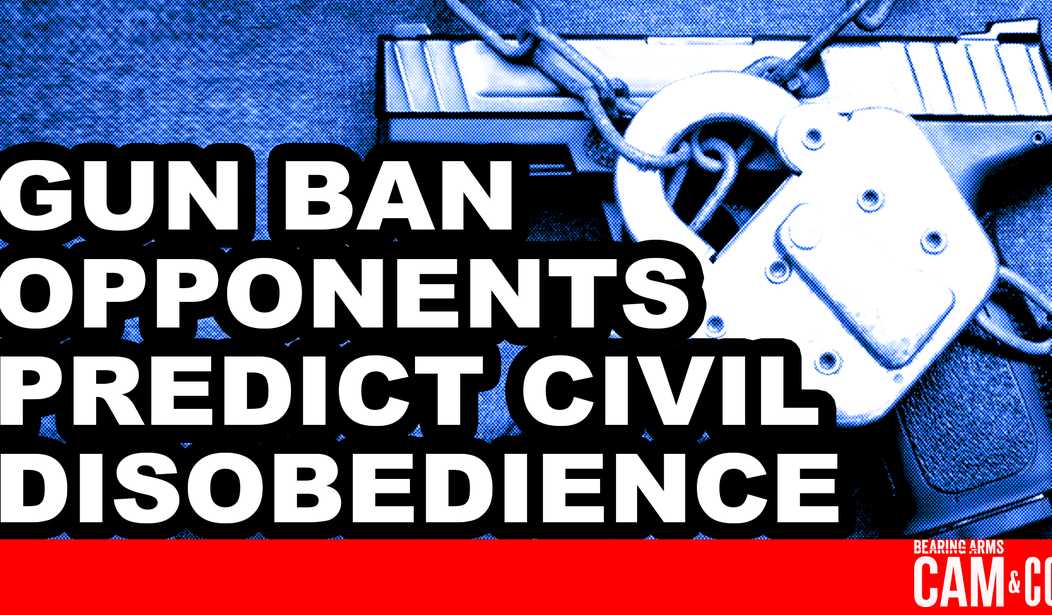What will happen if Illinois lawmakers end up approving a sweeping ban on semi-automatic rifles early next year? If you believe supporters of the ban, the state will magically become a much safer place as criminals suddenly discover a law that they’re willing to obey (unlike all of the current laws already in place). At a legislative hearing this week, however, opponents predicted that not only will violent criminals disregard any new state statutes, but many otherwise law-abiding gun owners will simply refuse to comply as well.
On Tuesday, the state’s House Judiciary Committee heard about five hours of testimony on the proposal to ban the sale and manufacture of modern sporting rifles and even some semi-automatic handguns, along with banning firearm possession in most cases for adults younger than 21 and expanding the state’s “red flag” law. Much of that testimony came from those who strongly object to the legislation; both for constitutional reasons as well as the practical impact (or lack thereof) that the restrictions would have on crime and public safety.
Todd Vandermyde, a longtime gun rights lobbyist, warned that the proposal unveiled last month by Democrats in the Illinois House could lead to “civil disobedience” for gun owners like him who believe the bill runs counter to their Second Amendment rights.
“I don’t know how you’re going to enforce this. You can’t put us all in jail,” Vandermyde told members of the House Judiciary Committee. “(Gun owners are) not going to surrender things. They’re not going to turn them in. So I ask you, what is the enforcement mechanism? Are you going to send (Illinois) State Police house to house?”
…
John Weber, an official with the National Rifle Association, criticized the common shorthand of assault weapon as a “manufactured term” that gun control advocates use to describe AR-15s and other firearms.
He contended that the proposal discriminates against 18-to-20-year-olds by prohibiting them from hunting, and also argued that a magazine restriction that was part of 1994 federal assault weapons ban which expired in 2004 was ineffective.
“The legislation will not work because it’s been tried and failed,” Weber said. “More importantly, this bill’s dangerous and places an undue constitutional burden on a person’s ability to provide for their self-defense.”
Ed Sullivan, a contract lobbyist for the Illinois State Rifle Association, said that on the day of the shooting in Highland Park, a well-to-do northern suburb with little crime, there were several shootings in parts of Chicago that experience much more crime.
He testified that the bill does nothing to “uplift communities and end economic disparities” in Chicago neighborhoods most affected by violence.
Even some progressive groups in Illinois have pointed out the fact that this anti-gun package is likely to lead to disparate outcomes in terms of arrests while criminalizing the exercise of a constitutional right, but the Democrats who are pushing the bill don’t seem to care about any of that. They’re still intent on portraying the bill as a “common sense solution” to gun violence, when it’s plain to see that this is really about preventing gun ownership. And in that respect, Vandermyde is right that there’s likely to be widespread civil disobedience to any measure telling gun owners to register their firearms with the state or potentially face felony charges; not only from gun owners themselves but from the dozens of counties across the state that have declared themselves to be Second Amendment sanctuaries.
Of course, in order for that to happen the proposed law will have to take effect first, and that is not a foregone conclusion. While Illinois Democrats expanded their majorities in both chambers of the legislature, the opposition to these new restrictions will likely be more bipartisan than the support they receive, and there’s still a chance that the current bills could be defeated instead of being enacted. Even if the gun ban, “red flag” expansion, and FOID prohibitions do garner enough support to get to Gov. J.B. Pritzker’s desk for his signature, the courts aren’t likely to look kindly on a law that strips young adults of their Second Amendment rights and prohibits the sale of the most-commonly purchased rifles in the country. There are several potential roadblocks that could prevent the bill from becoming law, but if those fail to halt the progress of the anti-civil rights legislation, I suspect that’s when we’ll really start to see outright defiance and disobedience to these unconstitutional edicts.









Join the conversation as a VIP Member